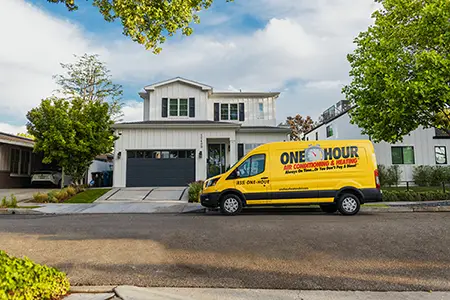Can a Heat Pump Really Affect the Value of Your Home?
 Hey there, fellow homeowners! Let’s chat about something that’s been on my mind lately – heat pumps. Now, I know what you’re thinking: “Heat pumps? Seriously? That’s not exactly cocktail party conversation!” But hear me out.
Hey there, fellow homeowners! Let’s chat about something that’s been on my mind lately – heat pumps. Now, I know what you’re thinking: “Heat pumps? Seriously? That’s not exactly cocktail party conversation!” But hear me out.
We’re all looking for ways to boost our home’s value, right? Well, what if I told you that this unassuming little device could potentially affect the value of your house and make it more attractive to buyers? Intrigued? Let’s dive in!
What’s the Big Deal About Heat Pumps Anyway?
Okay, let’s start with the basics. A heat pump is like the Swiss Army knife of home comfort. It heats, it cools, it does it all! But here’s the kicker – it doesn’t create heat. Instead, it’s more like a heat taxi, moving warmth from one place to another. Pretty cool, huh? (Or should I say, pretty warm?)
The best part? These little wonders can slash your energy bills by up to 50% compared to traditional heating systems. Now we’re talking! Who doesn’t love saving money, right?
Going Green: It’s Not Just for Kermit Anymore
Here’s the thing – nowadays, being eco-friendly isn’t just trendy, it’s becoming a way of life. And heat pumps? They’re like the superheroes of the energy world. They use way less energy than traditional systems, which means a smaller carbon footprint. It’s like giving Mother Nature a big, warm hug!
Plus, in some places, you might even get tax credits or incentives for installing one. It’s like the government is saying, “Hey, thanks for being awesome to the planet. Here’s some cash!” Who says you can’t save the world and save money at the same time?
Show Me the Money: How Heat Pumps Affect the Value of a Home
Now, let’s get down to brass tacks. Will a heat pump affect the value of your home overnight? Well, probably not. (Sorry to burst your bubble!) But here’s the thing – it can give your home a nice little boost, especially when combined with other modern upgrades.
Think about it. When potential buyers are house hunting, they’re not just looking at the cute kitchen or the spacious living room. They’re also thinking about those pesky energy bills. A heat pump is like a sign that says, “Hey, live here and save money every month!” That’s pretty attractive, right?
What Buyers Want: The Changing Face of Home Shopping
Let me tell you, the times they are a-changin’. More and more buyers are looking for homes that are energy-efficient and environmentally friendly. It’s not just about keeping up with the Joneses anymore – it’s about keeping up with the planet!
And if you live somewhere with wild weather, a heat pump can be a real selling point. It’s like saying, “Come on in! You’ll be comfy all year round, without breaking the bank!”
Before You Jump In: Things to Consider
Now, before you rush out and buy a heat pump, let’s pump the brakes for a second. (See what I did there?) There are a few things to think about:
- Cost: Installing a heat pump isn’t cheap. It’s more of an investment. But remember, you’re thinking long-term here.
- Your Home’s Needs: Not all heat pumps are created equal. You’ll want to get a pro to assess your home and figure out what type works best for you.
- Maintenance: Like any relationship, your heat pump needs a little TLC to keep things running smoothly. Regular check-ups are a must!
Keeping It Running: The Importance of Maintenance
Speaking of maintenance, let’s chat about that for a second. A well-maintained heat pump is like a well-oiled machine – it just keeps on ticking. Regular check-ups can prevent small issues from turning into big, expensive problems. Plus, when it comes time to sell, you can wow potential buyers with your maintenance records. It’s like a resume for your house!
Wrapping It Up: Is a Heat Pump Right for You?
So, there you have it, folks! Installing a heat pump can add some value to your home. It’s energy-efficient, eco-friendly, and can save you (or future owners) some serious cash on energy bills. Plus, it’s becoming more and more attractive to buyers who are looking for homes that are kind to both their wallet and the environment.
But remember, it’s not a one-size-fits-all solution. Before you take the plunge, do your homework. Talk to professionals, crunch the numbers, and think about your long-term plans for your home.
